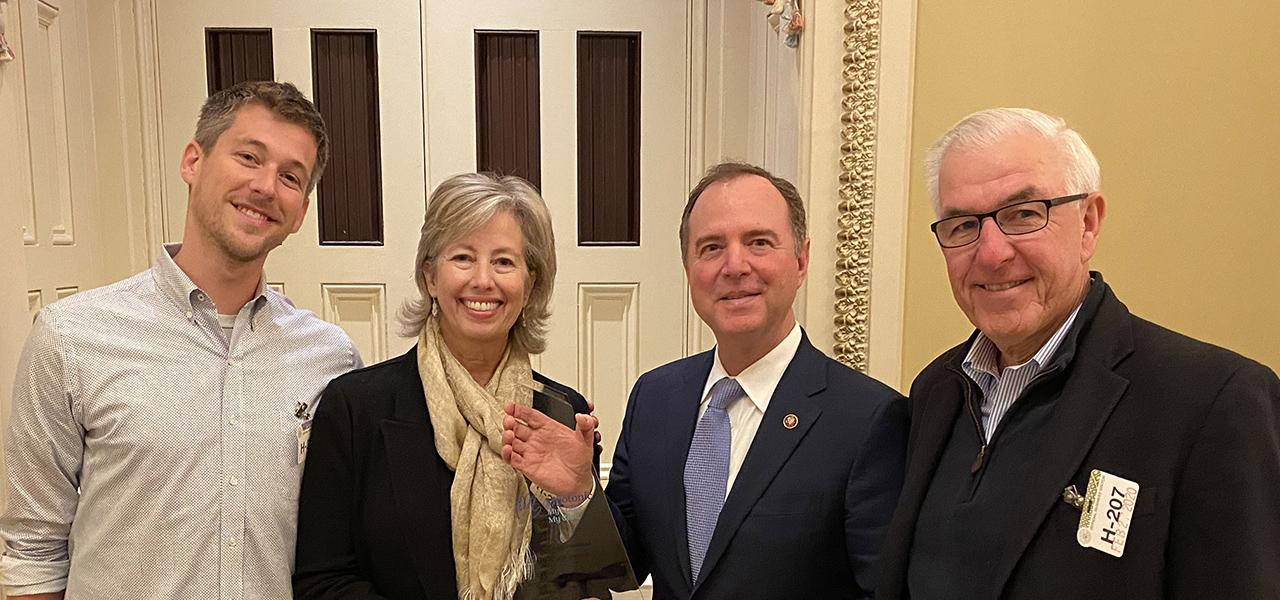The AHCA
In March, Republican Members of the U.S. House of Representatives’ Committee on Ways and Means and the U.S. House Committee on Energy and Commerce introduced legislation, entitled the American Health Care Act (AHCA), that would repeal and/or replace major parts of the Affordable Care Act (ACA). The ACA (also known as Obamacare) expanded health care coverage for more than 20 million vulnerable Americans and prohibited health insurance plans from discriminating against individuals with pre-existing conditions like myotonic dystrophy (DM). MDF is committed to advocating to help ensure that all persons with DM have affordable, comprehensive health insurance.
MDF Response and Your Opportunity to Act
MDF has reviewed the legislative proposal and identified significant concerns about how the proposed changes would limit access to affordable, quality health insurance coverage and vital medical care, especially for individuals living with rare, complex and costly conditions like DM. As Congress debates repealing and replacing the ACA, we urge our community to inform their elected Representatives and Senators to carefully consider any significant changes to health care and ensure that the interests of all Americans needing health care, especially those with special needs, including persons with DM and their families, are fully protected.
Potential AHCA Impacts to DM Families
The Congressional Budget Office (CBO) AHCA Cost Estimate released on March 13, 2017, estimated that, in 2018, the AHCA legislation would change the number of people who obtain federally-subsidized health insurance through Medicaid, the nongroup market and the employment-based market—an estimated 14 million more Americans would be uninsured under the AHCA legislation than under the current ACA law.
The Congressional Budget Office estimates that the AHCA would tend to increase average premiums in the nongroup market prior to 2020 and lower average premiums thereafter, relative to projections under current law. Medicaid enrollees, according to the CBO estimates, would decrease by $880 billion over the 2017-2026 period, as the result of lower enrollment culminating in 14 million fewer Medicaid enrollees by 2026. Under the legislation, beginning in 2020, the federal government would no longer share in the open-ended financing of Medicaid. The AHCA would establish a limit on the amount of reimbursement it provides to states, with states bearing all of the burden for increased costs.
Specifically, MDF is concerned about the following AHCA provisions:
- Insurance Subsidies. For individuals and families seeking health insurance who do not have group-based/employer-based coverage, AHCA would provide tax credits that would vary on the basis of age (not household income) between $2,000-$4,000 for individuals (more families) that could be used to purchase health insurance. These tax credits will be significantly lower than those currently offered under the ACA and could make it more difficult for lower-income individuals and families to afford health insurance.
- Continuous Coverage Penalty. The AHCA requires nongroup or small-group market health plans to impose a substantial late enrollment fee (a surcharge equal to 30 percent of their monthly premium for up to 12 months) for individuals who reapply for coverage after going more than 63 days without health insurance coverage.
The likelihood of having interrupted coverage is greater for those changing jobs, including people living with DM who may change or lose employment due to the significant physical and cognitive impairments. The AHCA thereby penalizes individuals with DM and other chronic conditions.
- Medicaid Expansion & Caps. Under the ACA, many states expanded eligibility for Medicaid coverage that was supported by additional federal funding. This would end in 2020 under the proposal, and many individuals currently receiving Medicaid coverage would lose coverage. Medicaid currently requires coverage for persons who qualify based on their income and their disability status.
MDF is concerned that eliminating expansion funding and capping the federal contribution to state Medicaid programs could result in persons with DM losing coverage, and those who keep their Medicaid coverage could see a reduction in covered medical services and higher out-of-pocket costs.
- Age Rating Rules. Beginning in 2018, AHCA would increase the limits on how much insurers in the nongroup and small-group markets can vary premiums on the basis of age. For example the premium for a 64-year-old could be three times to five times higher than the rate a 21-year-old is charged. This could adversely affect the adult-onset DM population.
MDF is pleased that the AHCA retains the following ACA provisions:
- Pre-Existing Condition Protections. Health insurers would still be prohibited from denying critical insurance coverage to individuals who have a “pre-existing” medical condition like DM, heart disease, diabetes and cancer.
- Young Adult Coverage. Parents could keep children up to age 26 on their health insurance policies.
- Lifetime & Annual Caps. Insurers would continue to be prohibited from setting annual and lifetime limits on health insurance expenditures they cover.
Next Steps - Get Involved
MDF will continue to advocate in a bipartisan manner to help ensure that all persons with DM have affordable, comprehensive health insurance with access to high quality medical care and therapies. Since it is anticipated that AHCA will be amended as it advances on its legislative journey to become a law, we will continue to closely monitor the evolving bills and offer our expertise. However, it is imperative that members of the MDF community become actively involved in advocating for ensuring access to affordable quality medical care for individuals with DM in their local areas as ACHA will likely include greater state-based choices.
Questions?
Contact MDF for more information at 415-800-7777, or info@myotonic.org.

